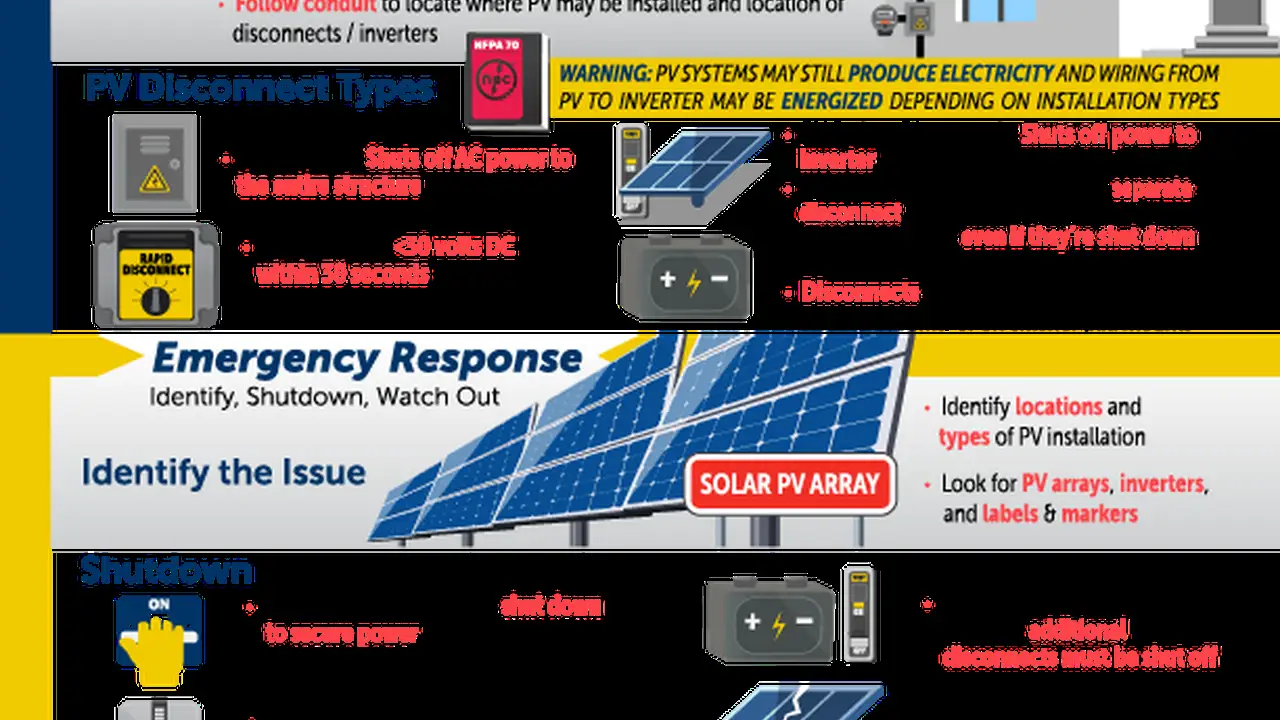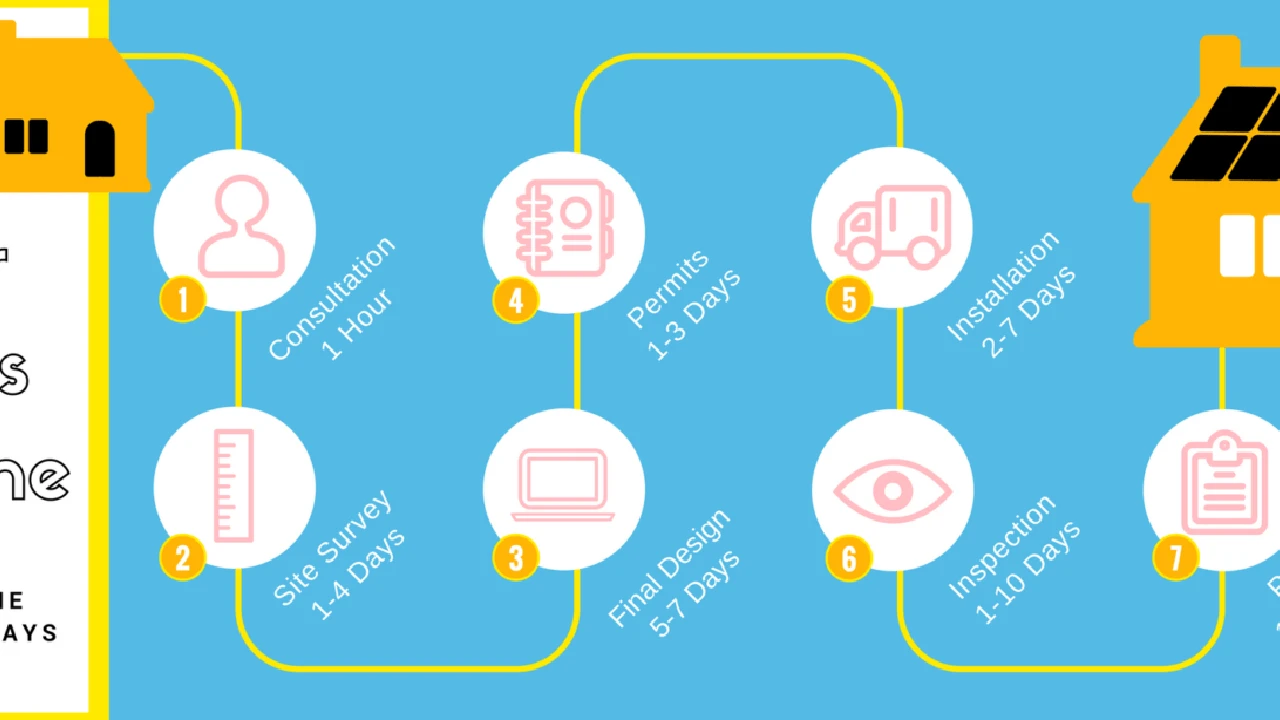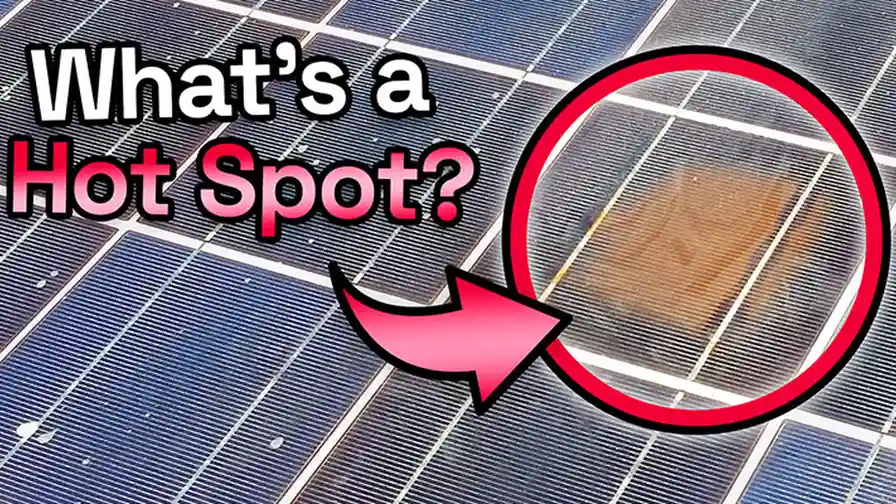Solar Panel Grounding Issues: Ensuring Safety

Understanding Solar Panel Grounding Why It Matters
Alright, let's talk about something super important when it comes to solar panels: grounding. You might be thinking, "Grounding? Sounds boring!" But trust me, it's the unsung hero of your solar power system, quietly working to keep you safe and your equipment running smoothly. Think of it like this: grounding is the safety net for your entire solar setup.
Basically, grounding is all about creating a path for stray electrical currents to safely flow to the earth. Without proper grounding, those currents could find their way through you, your house, or your appliances – not a fun scenario! We’re talking potential electric shocks, fires, and fried equipment. So yeah, grounding is pretty crucial.
Here's the deal: solar panels generate electricity, and sometimes things can go wrong. Maybe there's a surge from a lightning strike, or a fault in the wiring. Grounding provides a low-resistance path for that excess electricity to escape, preventing it from causing damage or harm. It's like a pressure relief valve for your electrical system.
Moreover, grounding helps to reduce electrical noise and interference, which can improve the performance and lifespan of your solar panels and other electronic devices. It also protects against static electricity buildup, which can be a problem, especially in dry climates.
Identifying Potential Solar Panel Grounding Problems Early Signs
So how do you know if you have a grounding issue? Well, sometimes it's obvious, like when you get a mild shock touching a metal part of your solar panel system. But more often, the signs are subtle. Keep an eye out for these potential red flags:
- Erratic System Performance: Are your solar panels suddenly producing less power than usual? A grounding problem could be the culprit.
- Tripped Circuit Breakers: If your circuit breakers are constantly tripping, it could indicate a ground fault.
- Visible Corrosion: Check your grounding wires and connections for signs of corrosion. Corrosion increases resistance, hindering the grounding system's effectiveness.
- Strange Noises: Buzzing or humming sounds coming from your solar panel system could indicate a grounding issue.
- Increased Utility Bills: If your solar panels aren't properly grounded, they may not be operating efficiently, leading to higher electricity bills.
If you notice any of these signs, don't ignore them! It's best to call a qualified solar installer or electrician to inspect your system and diagnose the problem.
DIY Solar Panel Grounding Inspection A Step-by-Step Guide
Okay, if you're feeling brave and have some basic electrical knowledge, you can perform a visual inspection of your solar panel grounding system. But please, be careful! Electricity can be dangerous. If you're not comfortable working with electricity, leave it to the professionals.
- Turn Off the Power: Before you do anything, disconnect your solar panel system from the grid. This is crucial for your safety.
- Locate the Grounding Wires: Look for the thick, usually green or bare copper wires connecting your solar panels to the grounding system.
- Check the Connections: Make sure the connections are tight and secure. Look for any signs of corrosion or damage.
- Inspect the Grounding Rod: The grounding rod is a metal rod driven into the ground that provides the earth connection. Make sure it's properly installed and free from corrosion.
- Test the Ground Resistance: If you have a multimeter, you can test the resistance of the grounding system. A low resistance reading indicates a good ground connection. Ideally, it should be less than 25 ohms.
If you find any problems during your inspection, don't try to fix them yourself unless you're a qualified electrician. It's always best to err on the side of caution when dealing with electricity.
Essential Solar Panel Grounding Equipment and Tools
To properly ground your solar panel system, you'll need the right equipment and tools. Here are some essentials:
- Grounding Wires: Use appropriately sized copper grounding wires. The size of the wire depends on the size of your solar panel system.
- Grounding Lugs: These are used to connect the grounding wires to the solar panels and other components.
- Grounding Rod: A copper or copper-clad steel rod driven into the ground to provide the earth connection.
- Grounding Clamps: Used to connect the grounding wires to the grounding rod.
- Multimeter: Used to test the resistance of the grounding system.
- Wire Strippers: Used to strip the insulation from the grounding wires.
- Crimping Tool: Used to crimp the grounding lugs onto the wires.
Recommended Products for Solar Panel Grounding Solutions
Let's look at some specific products that can help with solar panel grounding. Keep in mind that prices can vary depending on the vendor and location.
Grounding Rods Comparison and Recommendations
- Copper Ground Rod (8 ft, 5/8 inch): A standard and reliable choice. Provides excellent conductivity and corrosion resistance. Ideal for most residential solar panel systems. Price: $30 - $50. Consider the Halex Copper Ground Rod.
- Copper-Clad Steel Ground Rod (8 ft, 5/8 inch): A more affordable option that still offers good conductivity. The steel core provides strength, while the copper cladding protects against corrosion. Suitable for areas with less corrosive soil. Price: $20 - $40. Consider the Southwire Copper-Clad Steel Ground Rod.
- Stainless Steel Ground Rod (8 ft, 5/8 inch): Offers superior corrosion resistance, making it ideal for coastal areas or soils with high salt content. More expensive than copper or copper-clad steel. Price: $80 - $120. Look for reputable brands like ABB or ERICO.
Grounding Lugs and Clamps Top Choices
- Burndy YGHA Series Grounding Lugs: High-quality copper lugs designed for direct burial applications. Provide a secure and reliable connection. Price: $5 - $15 per lug.
- ILSCO GTL Series Grounding Lugs: Another excellent option for grounding lugs, known for their durability and ease of installation. Price: $4 - $12 per lug.
- ERICO Ground Rod Clamps: Reliable clamps for connecting grounding wires to the ground rod. Ensure a tight and corrosion-resistant connection. Price: $10 - $25 per clamp.
Grounding Wire Suggestions
- THHN/THWN-2 Copper Wire (Green, 6 AWG or larger): A common and versatile type of wire suitable for grounding applications. The "THHN" and "THWN-2" designations indicate that the wire is heat-resistant and water-resistant. Price: Varies depending on length and gauge.
- Bare Copper Wire (6 AWG or larger): Another option for grounding wires, especially for direct burial applications. Ensure the wire is properly sized for the current carrying capacity of your solar panel system. Price: Varies depending on length and gauge.
Important Note: Always consult with a qualified electrician to determine the appropriate grounding equipment and wire sizes for your specific solar panel system and local electrical codes.
Troubleshooting Common Solar Panel Grounding Problems
Even with proper installation, grounding problems can still occur. Here are some common issues and how to address them:
- Loose Connections: Over time, connections can loosen due to vibration or temperature changes. Regularly check and tighten all grounding connections.
- Corrosion: Corrosion can increase resistance and weaken the grounding system. Clean corroded connections with a wire brush and apply a corrosion inhibitor.
- Broken Grounding Wires: Inspect grounding wires for any signs of damage, such as cuts or breaks. Replace any damaged wires immediately.
- High Ground Resistance: If your ground resistance is too high, it could indicate a problem with the grounding rod or the soil conductivity. You may need to drive the grounding rod deeper or add additional grounding rods.
Maintaining Your Solar Panel Grounding System for Long-Term Safety
To ensure the long-term safety and performance of your solar panel system, it's important to regularly maintain your grounding system. Here's what you should do:
- Visual Inspections: Perform visual inspections of your grounding system at least once a year. Look for loose connections, corrosion, and damaged wires.
- Ground Resistance Testing: Test the ground resistance every few years to ensure it's within acceptable limits.
- Professional Inspections: Have your solar panel system inspected by a qualified electrician every 5-10 years.
Local Codes and Regulations on Solar Panel Grounding
Before installing or modifying your solar panel grounding system, it's crucial to understand and comply with local electrical codes and regulations. These codes are in place to ensure the safety and reliability of your electrical system.
Contact your local building department or a qualified electrician to learn about the specific grounding requirements in your area. They can provide guidance on wire sizes, grounding rod placement, and other important details.
The Future of Solar Panel Grounding Advanced Technologies
The field of solar panel grounding is constantly evolving, with new technologies and techniques being developed to improve safety and performance. Some of the emerging trends include:
- Smart Grounding Systems: These systems use sensors and monitoring devices to detect and respond to grounding faults in real-time.
- Improved Grounding Materials: Researchers are developing new grounding materials with enhanced conductivity and corrosion resistance.
- Wireless Grounding Monitoring: Wireless sensors can be used to monitor the condition of grounding systems remotely, allowing for proactive maintenance.
By staying informed about these advancements, you can ensure that your solar panel system is grounded using the most effective and up-to-date methods.
:max_bytes(150000):strip_icc()/277019-baked-pork-chops-with-cream-of-mushroom-soup-DDMFS-beauty-4x3-BG-7505-5762b731cf30447d9cbbbbbf387beafa.jpg)






